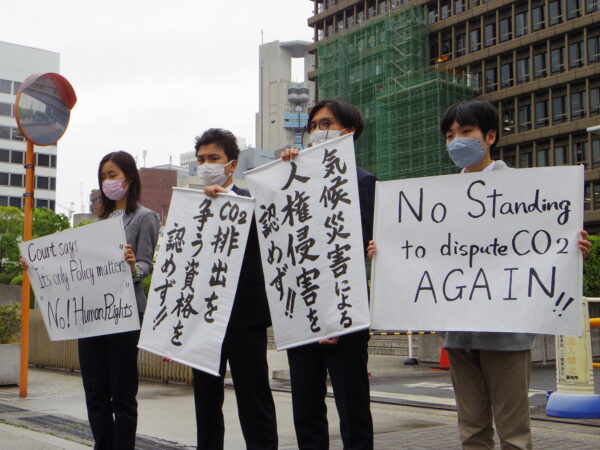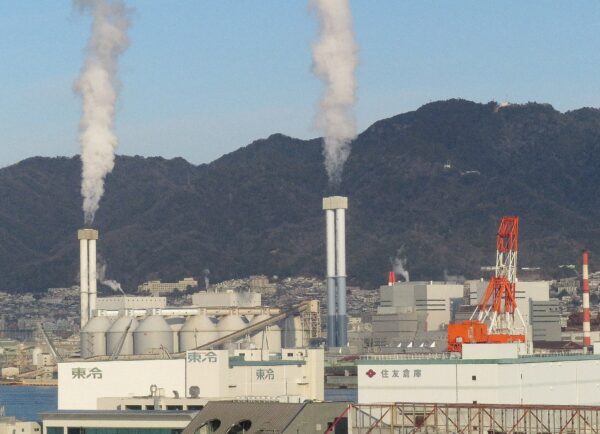On April 26, 2022, an appeal court ruling was handed down in the Kobe Climate Case administrative lawsuit regarding the Japanese government’s responsibility in approving the construction of a coal-fired power plant expansion project being promoted by Kobe Steel, Ltd. in Nada Ward, Kobe City, with the unfortunate result that the citizens’ lawsuit was dismissed by the court, directly affirming the ruling of the first trial.

In this trial, plaintiffs are requesting reversal of the government’s decision to approve the construction of the coal-fired power plant on two issues: illegality of authorizing the construction, and the rights of the residents:
1) The illegality of not assessing the contribution of PM2.5 emitted by the power plant to air pollution and its resulting impacts.
2) The right of residents to be free from the impacts of climate change caused by the significant amount of CO2 emitted from the power plant. .
Regarding the air pollutant PM2.5, although the court acknowledged that “sufficient options to consider PM2.5 existed,” but ruled that, subject to the professional and technical discretion of the Minister of Economy, Trade and Industry, the failure to include PM2.5 in the environmental assessment “cannot be said to be illegal.”
In response to the right to be free from the effects of climate change, the court did not grant the plaintiffs the right to sue for this, stating that it “is not an individual interest that deserves legal protection, nor is it a developed international or national debate at this time.”
On the other hand, the court acknowledged that there are “various, major, and important challenges” regarding Japan’s current climate change measures. As for the outlook for achieving the country’s 2030 greenhouse gas reduction target (26% below FY2013 levels at the time of the plan, 46% below FY2013 levels now, and up to 50% below FY2013 levels), the court expressed strong doubts when stating, “it does not appear that a concrete roadmap for achieving the 2030 target has been laid out.” This judgment implies a direction that could change depending on the future social landscape in Japan and overseas.

In recent years, there has been a rapid increase in recognition, especially throughout Europe and the United States, that climate change issues and the substantial emission of CO2 are illegal human rights violations. Japanese courts should also put a stop to plans to build and operate new coal-fired power plants that emit large amounts of greenhouse gases and other pollutants, instead of letting them go unchecked.
The plaintiffs, in consultation with their lawyers, appealed to the Supreme Court on May 6, arguing that, as citizens responsible for the future of their children, not being allowed to sue over climate change impacts violates their constitutionally-guaranteed right to a trial.
Related Links
Kobe Climate Case (English website)
No Coal Kobe (Japanese language only)
JBC News:
【News】Kobe Climate Case Judicial Ruling: Voices of Citizens Not Heard(2021/3/23)
【News】Kobe Climate Case: Administrative Lawsuit Concludes(2022/1/7)
